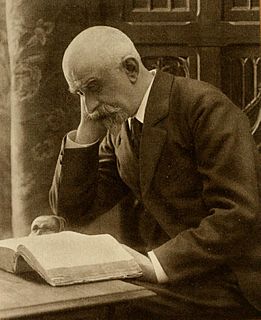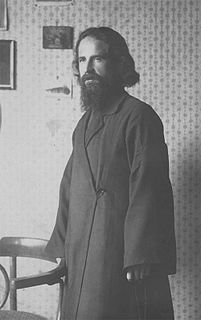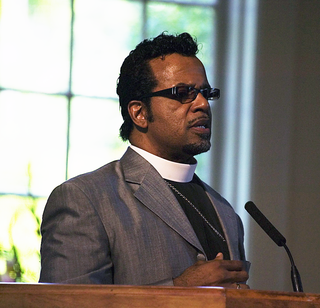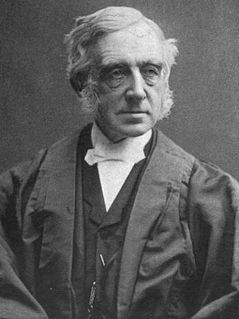A Quote by Nikos Kazantzakis
The dual substance of Christ - the yearning, so human, so superhuman, of man to attain God. [...] has always been a deep inscrutable mystery to me. [...] My principle anguish and source of all my joys and sorrows from my youth onward has been the incessant, merciless battle between the spirit and the flesh. [...] And my soul is the arena where these two armies have clashed and met.
Related Quotes
The belief that man is an irresolute creature pulled this way and that by two forces of equal strength, alternately winning and losing the battle for his soul; the conviction that human life is nothing more than an uncertain struggle between heaven and hell; the faith in two opposed entities, Satan and Christ - all this was bound to engender those internal discords in which the soul, excited by the incessant fighting, stimulated as it were by the constant promises and threats, ends up by giving in and prostitutes itself to whichever of the two combatants has been more obstinate in its pursuit.
The holy mystery of the day of the Holy Spirit, Pentecost, is to be understood in the following manner: the spirit of man must be completed and perfected by the Holy Spirit, that is, it must be sanctified, illuminated, and divinized by the Holy Spirit. This holy mystery is realized continually in the Church of Christ and because of this the Church is really a continuous Pentecost.... From Holy Pentecost, the day of the Holy Spirit, every God-like soul in the Church of Christ is an incombustible bush which continuously burns and is inflamed with God and has a fiery tongue within it.
The death of Christ made it possible for God to accept sinful man, and that he has, in fact, done so. Consequently, whatever separation there is between man and the benefits of God's grace is subjective in nature and exists only in man's mind and unregenerate spirit. The message man needs to hear then, is not that he simply has a suggested opportunity for salvation, but that through Christ he has, in fact, already been redeemed to God and that he may enjoy the blessing that are already his through Christ
The yearning to know what cannot be known, to comprehend the incomprehensible, to touch and taste the unapproachable, arises from the image of God in the nature of man. Deep calleth unto deep, and though polluted and landlocked by the mighty disaster theologians call the Fall, the soul senses its origin and longs to return to its source.
[People] might have a different word for the yearning of the heart and the yearning of the spirit that is looking for what I call "God," it still is the same thing. It is the heart's yearning to know the origin of its mystery. It's a heart's yearning to know the power of the divine in each of our lives. It's a heart's yearning to be connected to that.
I am not an ape, I am a man. The world has been created by God. Man has been created by God. It is not possible for man to understand God - God understands God. Man is God and therefore understands God. I am God. I am a man. I am good and not a beast. I am an animal with reason. I have flesh, I *am* flesh, I am not descended from flesh. Flesh is created by God. I am God. I am God. I am God.
The inner throne of man is both what the kingdom of Christ and the kingdom of Lucifer are after. And when this throne is yielded to the Almighty God, a man enters upon the sacred path of greatness right then and there...The destiny of a human soul depends entirely on who sits upon the throne of that soul...when the flesh is removed from its position of power, the human soul is made ready to usher in the glory of its true and rightful King
There is One God and One Mediator between God and man, the man Jesus Christ (cf. I Tim. 2:5). For He still pleads even now as man for my salvation; for He continues to wear the Body which He assumed, until He make me a god by the power of His Incarnation; although He is no longer known after the flesh (cf. II Cor. 5:16) ? I mean, the passions of the flesh, the same, except sin, as ours.
The struggle between God and man breaks out in everyone, together with the longing for reconciliation. Most often this struggle is unconscious and short-lived. A weak soul does not have the endurance to resist the flesh for very long. It grows heavy, becomes flesh itself, and the contest ends. But among responsible men, men who keep their eyes riveted day and night upon the Supreme Duty, the conflict between flesh and spirit breaks out mercilessly and may last until death.
Everywhere and always, since its very inception, Christianity has turned the earth into a vale of tears; always it has made of life a weak, diseased thing, always it has instilled fear in man, turning him into a dual being, whose life energies are spent in the struggle between body and soul. In decrying the body as something evil, the flesh as the tempter to everything that is sinful, man has mutilated his being in the vain attempt to keep his soul pure, while his body rotted away from the injuries and tortures inflicted upon it.


































